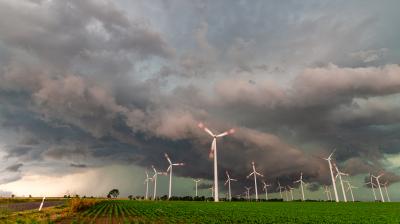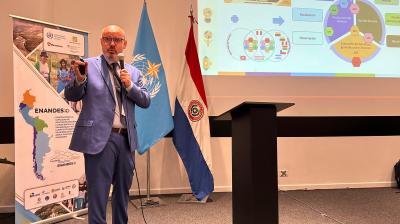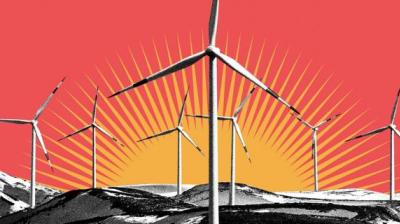
Energy
Energy is essential to almost all aspects of human well-being – access to water, agricultural productivity, health care, education, job creation, environmental sustainability and more.
Our energy consumption methods, levels and sources have a big impact on our world.
Overview
The energy sector is one of the main emitters of greenhouse gases (GHGs) and plays a crucial role in addressing climate change and achieving emissions reduction targets.
In this context, the global energy transition towards renewable energy, in line with the decarbonization targets stipulated in the 2015 Paris Agreement, is critical to reducing emissions towards achievement of the net zero emission target. This transition is an ongoing process that aims to decarbonize the energy system by moving towards harvesting more renewable energies such as solar, wind and hydroelectric power and recognizing the potential of nuclear sector in this transition. Given that renewables are highly dependent on the weather condition, more advanced weather, water and climate services is a need for this sector.
Decarbonization also includes a drastic increase in energy efficiency, thorough digitalization for smart decisions and boosted investment in low-carbon innovation. The energy transition is of paramount importance, but the resilience of energy systems also needs to be strengthened to ensure continuity of supply, and to mitigate damage to infrastructure in a changing climate with more extreme weather, water and climate events.
Therefore, weather, water and climate services play a key role in both mitigation and adaptation actions.
Impact
For many years, fossil fuels (non-renewable sources of energy like coal, natural gas, and crude oil) have powered human activity, mobility, and industry. However, burning these carbon-rich fuels has huge environmental impacts.
The Paris Agreement calls on countries to increase their ambitions for creating clean, resilient, efficient, and widely accessible energy systems to limit the effects of global warming and its consequences. In broad terms, over 70% of the total greenhouse gas (GHG) emissions can be attributed to the energy sector. Therefore, a major transition in the energy sector is required to limit global warming to 1.5°C. This will involve deep reductions in fossil fuel use, low- or no-carbon energy systems, widespread electrification, use of alternative fuels such as hydrogen and biofuels in those hard-to-decarbonise sectors (e.g. aviation and heavy vehicles) and improved energy efficiency. Designing this large-scale transition to be climate-resilient is a critical imperative. This involves the incorporation of essential adaptation measures and the establishment of early warning mechanisms for the energy sector to ensure energy security.
WMO's response
Utilizing advanced weather, water, and climate information and services is essential for ensuring a climate-resilient energy transition. These services cover a wide range of timeframes, from historical data to nowcasting, sub-seasonal to seasonal forecasting, annual to multi-annual predictions, and decadal climate projections. Such information underpins resources planning, routine operation and maintenance, risk management and investment planning of energy systems including renewable resources, nuclear power plants, thermal power plants, electricity grid and other forms of energy production.
The WMO Climate and Energy team, in collaboration with a broad network of external partners, conducts a diverse range of mitigation and adaptation activities. These initiatives primarily focus on supporting WMO member states in addressing climate challenges while supporting net zero energy transitions, energy demand management, resilience of energy infrastructure, early warnings for energy, energy security, and energy efficiency. Such activities involve, but not limited to, continuous monitoring of sector needs from both public and private entities, the development of essential technical publications, guidelines, and best practices, capacity-building for National Meteorological and Hydrological services to deliver advanced services tailored for the energy sector through training, webinars, and conferences. Additionally, regional projects and national demonstration services and products are established to meet sector-specific requirements. Furthermore, WMO facilitates data exchange to underpin climate-resilient energy transitions and ensure energy security.














